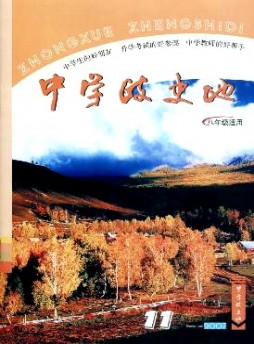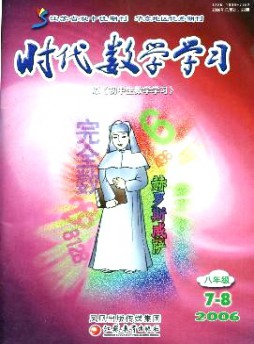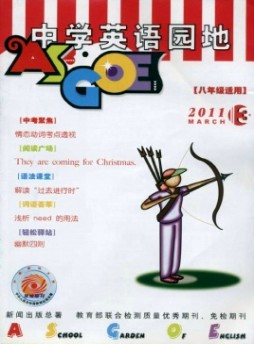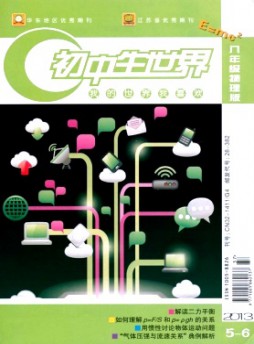八年級(jí)英語(yǔ)教案范文
前言:我們精心挑選了數(shù)篇優(yōu)質(zhì)八年級(jí)英語(yǔ)教案文章,供您閱讀參考。期待這些文章能為您帶來(lái)啟發(fā),助您在寫作的道路上更上一層樓。
第1篇
(一)本單元語(yǔ)言目標(biāo):
1. 談?wù)撛趯W(xué)校和家庭中遇到的種種麻煩和問(wèn)題。
2. 為他人找到合理的解決辦法,提出相應(yīng)的建議。
3. 為自己的問(wèn)題找到解決辦法。
(二)重點(diǎn)單詞:
1. play v. 播放 2. loud adj. 高聲的;大聲的 3. argue v. 爭(zhēng)論,爭(zhēng)吵 4. wrong adj. 錯(cuò)誤的;有毛病的;不適合的 5. could v. can的過(guò)去式 6. ticket n. 票,入場(chǎng)券
7. surprise v. 使驚奇;使意外 8. other adj. 任一的;(兩方中的)每一方的
9. except prep. 除;把......除外 10. fail v. 失敗 11. football n. 足球
12. until prep. 到......為止 13. fit v. 適合,適應(yīng) 14. include v. 包括;包含
15. send v. 發(fā)送,寄 16. themselves pron. 他們自己(反身代詞)
(三)重點(diǎn)詞組:
1. keep out不讓......進(jìn)入
2. out of style不時(shí)髦的;過(guò)時(shí)的
3. call sb. up打電話給......
4. pay for付款
5. ask for要求
6. the same as與......同樣的
7. in style時(shí)髦的;流行的
8. get on相處;進(jìn)展
9. as much as possible盡可能多
10. all kinds of各種;許多
11. on the one hand, ......(在)一方面,......
12. on the other hand, ......另一方面,......
(四)重點(diǎn)句型:
1. What should I do?
我應(yīng)該怎么做?
2. You could write him a letter.
你可以寫信給他。
3. What should he do?
他應(yīng)該怎么做?
4. Maybe he should say he's sorry.
也許他應(yīng)該說(shuō)抱歉。
5. What should they do?
他們應(yīng)該怎么做?
6. They shouldn't argue.
他們不應(yīng)該爭(zhēng)吵。
(五)重點(diǎn)語(yǔ)法:
情態(tài)動(dòng)詞should的用法
should是情態(tài)動(dòng)詞,它的基本用法是必須和其他動(dòng)詞一起構(gòu)成謂語(yǔ)。情態(tài)動(dòng)詞沒(méi)有人稱和數(shù)的變化,意為"應(yīng)該......"。
should(應(yīng)當(dāng),應(yīng)該)用于所有人稱,表示勸告或建議。
eg. You should wait a little more.
你應(yīng)該再多等一會(huì)兒。
--- I have a very bad cold.我感冒很厲害。
--- You should lie down and have a rest.你應(yīng)該躺下,多喝水。
在這個(gè)單元中我們還學(xué)到用"could"表示建議,這時(shí)could不是can的過(guò)去式,而表示比should更加委婉的建議。
--- I need some money to pay for the summer camp.
---- You should/ could borrow some money from your brother.
(六)知識(shí)點(diǎn)講解:
1. I don't have enough money.
我沒(méi)有足夠的錢。
enough:adj.充足的、充分的,在句子中可作定語(yǔ)修飾名詞,也可作表語(yǔ)。
eg. Do you have enough time?
Six pieces of paper will be enough.
2. I argued with my best friend.我與我的朋友吵架了。
argue with sb.意為"與......爭(zhēng)吵,爭(zhēng)論"
eg. He often argue with his classmates.
3. My clothes are out of style.
我的衣服過(guò)時(shí)了。
be out of style / fashion表示"過(guò)時(shí)""不合乎時(shí)尚"
反義詞是"be in fashion"表示"合乎時(shí)尚"
eg. He is always in fashion.
The sofa is out of style, and I don't like it.
4. Maybe you should call him up.
(1)maybe是副詞,用來(lái)表示推測(cè),譯為"也許,或許,大概"。
eg. Maybe you are right.
Maybe they will go out for a walk.
maybe不同于may be。maybe是一個(gè)詞,是副詞,may be是情態(tài)動(dòng)詞may加上動(dòng)詞原形be,意為"或許",后接形容詞、名詞、代詞等。
eg. It may be true.
He may be the man we are looking for.
(2)call sb up .打電話給某人
eg. I called up Zhang Hong at eight o'clock.
原句中him為代詞,所以放在call和up之間,不能說(shuō)成call up him。
eg. I'll call her up this afternoon.
Could you ask him to call me, please.在這個(gè)句子中,省略u(píng)p。
5. I don't want to surprise him.
我不想使他驚訝。
在這句話中surprise是個(gè)行為動(dòng)詞,可以說(shuō)成"surprise sb.",表示"使......驚訝"。
eg. The news surprises us greatly.
surprised adj.驚訝的
surprising adj.令人驚訝的
eg. I'm surprised to hear the news.
It's a surprising gift, and I love it.
6. No, he doesn't have any money, either.
不,他也沒(méi)有錢。
either的用法:用作副詞,用在否定句或否定詞組后加強(qiáng)語(yǔ)氣,表示"也","而且"。
eg. He doesn't like singing, and he doesn't like dancing, either.
either用作代詞時(shí),常表示"兩者之中任何一個(gè)",常與短語(yǔ)連用或用作賓語(yǔ)。
eg. Either of them will agree with you.
I don't like either of the books.
7. I need to get some money to pay for summer camp.
我需要一些錢支付夏令營(yíng)。
(1)need是個(gè)情態(tài)動(dòng)詞,也可以是行為動(dòng)詞。
當(dāng)它是情態(tài)動(dòng)詞時(shí),后邊直接加行為動(dòng)詞,表示"需要",但need作情態(tài)動(dòng)詞時(shí)一般不用于肯定句。它一般用于否定句和疑問(wèn)句中,例如:
①You need not meet him.你不必見(jiàn)他。
②Need I repeat it?我有必要重復(fù)它嗎?
對(duì)上一句的簡(jiǎn)略回答為:Yes, you need. No, you needn't.
此外情態(tài)動(dòng)詞must提問(wèn)時(shí),否定回答時(shí)為No, ... needn't。
例如:Must he finish the homework now?
Yes, he must. No, he needn't.
當(dāng)need作行為動(dòng)詞時(shí),同其他行為動(dòng)詞一樣對(duì)待,need后加不定式為"need to do"。
例如:I need to finish the work.
變?yōu)橐蓡?wèn)句時(shí),不能像它作情態(tài)動(dòng)詞時(shí)直接提前,而要加助動(dòng)詞do/ does/ did等,例如:
He needs to write many words.
改成一般問(wèn)句:Does he need to write many words?
他需要寫許多字嗎?
Yes, he does. No, he doesn't.
(2)(sb.)pay(money)for sth.為......而付款
(sb.)spend(money)on sth在......上花多少錢
(sth.)cost sb.(money)什么東西值多少錢
這三個(gè)短語(yǔ)都是表示付款。但pay, spend指的是"人",主語(yǔ)為人,而cost指的是"物",主語(yǔ)為"物"。
例如說(shuō)他昨天花10元買了一本書(shū)。用以上三個(gè)短語(yǔ)分別為:
①He paid 10 yuan for the book yesterday.
②He spent 10 yuan on the book yesterday.
③The book cost him 10 yuan yesterday.
注意以上三個(gè)動(dòng)詞的動(dòng)詞過(guò)去式為:
pay---paid spend ---- spent cost----cost
以上三個(gè)例句的翻譯為:
①他昨天為這本書(shū)付了10元錢。
第2篇
Unit1學(xué)習(xí)評(píng)價(jià)答案
Ⅰ、1-5BDCBA
6-10BABBB
11-15DCDAC
Ⅱ、16-20BADDA
21-25BCCAB
Ⅲ、26-30DBCDD
31-35CADBC
36、Thesummervacationlastsfortwomonths.
37、Yes,theycan.
38、Peterworkedatagasolinestation.
39、Hesoldgasolineandrepairedcars.
40、Hemademoneyfortheuniversitytuition.
Ⅳ、41、is
42、school
43、speak
44、Chinese
45、working
46、friendly
47、children
48、live
49、on
50、talking
Ⅴ、Onepossibleversion:
LastweekendIwenttoaBeijingHutongwithmyfamily.Itwasasunnyandwarmday.InthemorningwetookalotofphotosofthebeautifulHutongandtalkedwiththepeoplewholivethere.Theywerereallyfriendly.Intheafternoon,wewentshoppingandboughtsomethingspecial.ThenweateBeijingDuckatafamousrestaurant.Itwasreallydelicious.Tiredbuthappy,wetookthesubwaybackhome.WhatagreatWeekend!
Unit2學(xué)習(xí)評(píng)價(jià)答案
Ⅰ、1-5ABCCA
6-10DDCBC
11-15ACBBD
Ⅱ、16-20ACDDB
21-25ABDAB
Ⅲ、26-30BCACC
31-35DDDCB
36、Takingregularwalkshelpsolderpeoplepayattentionbetterthaniftheydidn'texercise.
37、Micearetestedinpreviousresearch.
38、41adultsweretested.
39、Goingforawalkevery2or3daysforjust10to45minutescanbegoodnewsforgrandparents.
40、Yes,itcan.
Ⅳ、41、country
42、stayed
43、meeting
44、nobody
45、hungry
46、remembered
47、think
48、order
49、nothing
50、around
Ⅴ、Onepossibleversion:
Myclassmate,Maggie,hardlyeverdoeshousework.Shedoesherhomeworkthreehourseveryday.Onceamonthshegoescampinginthecountry.ShehardlywatchesTV.ButsheusestheInternetonceaweek.Everydayshedoessomereading.Sheoftendoessports.Sheexercisesfivetimesaweekandgoestothemoviesonceamonth.
Unit3學(xué)習(xí)評(píng)價(jià)答案
Ⅰ、1-5CBCDA
6-10BCCCB
11-15ACBBD
Ⅱ、16-20BCADB
21-25CBCDC
Ⅲ、26-30BDAAD
31-35BCDDA
36、Theyare"pestfriends","guestfriends"and"bestfriends".
37、No,Iwon't.
38、Aguestfriendisasocialpartner.
39、Bestfriendsaretheonesthatyoucanleananddependonnomatterwhathappens.
40、It'saboutthreekindsoffriendsinourlife.
Ⅳ、41、party
42、special
43、card
44、decided
45、came
46、others'
47、whole
48、left
49、job
50、much
第3篇
Unit1第一課答案
Ⅰ、2、visitedthemuseum
3、wentcamping/wenttosummercamp
4、stayedathomeandwatchedTV
5、wenttothelibrary
6、wenttothepark
Ⅱ、1、Vicky
2、Alex
3、Emily
4、Sue
Ⅲ、1、No,hedoesn't.
2、Yes.Heboughtmanythingsforhisfamily.
3、Yes,hedid.HevisitedtheGreatWallandrodeabikeinBeijinghutong.
4、TheUSA,Beijing,Guizhou,HongKong.
Unit1第二課答案
Ⅰ、Regularverbs:
study-studied,visit-visited,
seem-seemed,climb-climbed,
enjoy-enjoyed,stop-stopped,
worry-worried,taste-tasted
Irregularverbs:
meet-met,swim-swam,
buy-bought,feed-fed,
keep-kept,eat-ate,
see-saw,read-read
Ⅱ、1、fed
2、keep
3、seemed
4、visited
5、swam
Ⅲ、anyone,Everyone,something,everything,nothing
Unit1第三課答案
Ⅰ、1、relaxing
2、expensive
3、special
4、exciting
5、bored
Ⅱ、1、HowarethefruitsinHongKong?
2、Howwastheweatheryesterday?
3、WhereisCentralPark?
4、WhodidyougotoMalaysiawithlastweek?
5、WhatdidtheydoinBeijing?
Unit1第四課答案
Ⅰ、1、Didyoulikeanythingduringthetrip?
2、Didhedoanythingspecialonvacation?
3、DidKevinmeetanyoneinterestingyesterday?
4、DidMikevisitanywherequietandbeautiful?
5、Didtheyfeelreallytired?
Ⅱ、A.difference.climb,top,excited,raining,enough,photos,taste
B.Onepossibleversion:
May1st
Ihadanexcitingtripwithmyfamilytoday.WewenttotheWestLakeinHangzhou.Itwassunny,sowedecidedtoridebicyclesaroundthelakeinthemorning.TheWestLakeisquitelarge.Myparentsfelttiredafterriding,butIfeltveryrelaxedbecauseIdosportseveryday.Isawmanybeautifulflowersalongtheway.Forlunch,wehadsomethingspecial-WestLakeFishinVinegarGravyandDongpoPork.Theytastedquitedelicious.Intheafternoon,wewentboatingandtookquiteafewphotos.Ireally
enjoyedmyself.
Unit1第五課答案
Ⅰ、1、H2、B
3、C4、G
5、D6、E
7、A8、F
Ⅱ、A.
Name Whendidhelshego? Whatdidhelshedo? Howwasthetrip?
Lisa lastsummer tookmusiclessonswithaMexicanguitarist;learnedaboutMexicanartandculture wonderful
James lastmonth stayedinthehotelasmuchashecould;methisMexicancustomers boring



